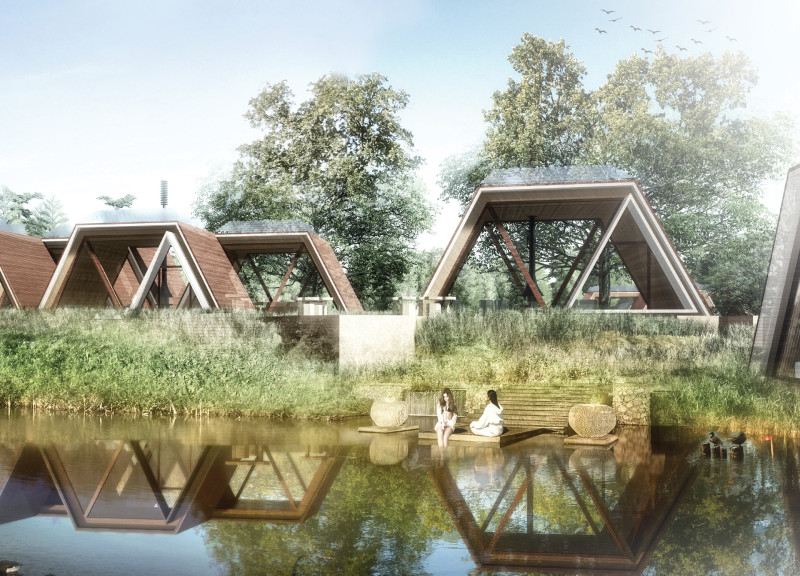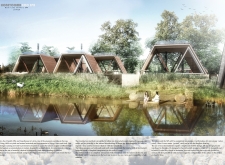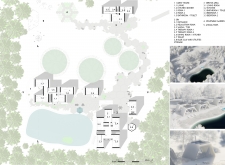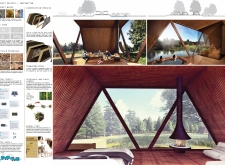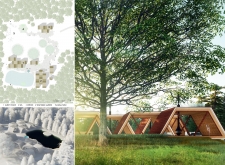5 key facts about this project
# Architectural Project Report: Honeycomb Eco Spa in Latvia
## Overview
Located in Latvia, the Honeycomb Eco Spa is designed to create a sustainable retreat that harmonizes with the surrounding natural landscape. The project integrates innovative design principles to cultivate a space that supports relaxation, eco-tourism, and energy independence. Inspired by animal habitats and guided by sustainable living principles, it utilizes natural materials to foster a connection between inhabitants and their environment.
## Design Intent and Spatial Configuration
The design of the Honeycomb Eco Spa emphasizes autonomy and sustainability, featuring structures that generate their own energy, collect rainwater, and utilize minimal embedded resources. Its layout includes modular cabin units that are strategically oriented to maximize natural light and ensure views of the landscape. The central guest house serves as the focal point for social interaction, while dedicated spa facilities offer comprehensive wellness treatments. The inclusion of a vegetable garden enhances self-sufficiency and supports sustainable practices.
### Architectural Form and Materiality
The cabins are characterized by their distinct geometric shapes, reminiscent of honeycombs, which serve both aesthetic and functional purposes, including rainwater collection through sloped roofs. Constructed from 100% recycled and natural materials, such as recycled wood, glass, insulation, recycled metal, and natural stone, the project promotes environmental responsibility while ensuring durability and aesthetic appeal. Extensive glass openings throughout the structures facilitate natural light and provide unobstructed views, reinforcing the connection between indoor spaces and the natural surroundings.
This commitment to sustainability is further exemplified by the implementation of autonomous energy systems, such as solar panels and advanced water filtration, which collectively minimize the ecological footprint of the development.


